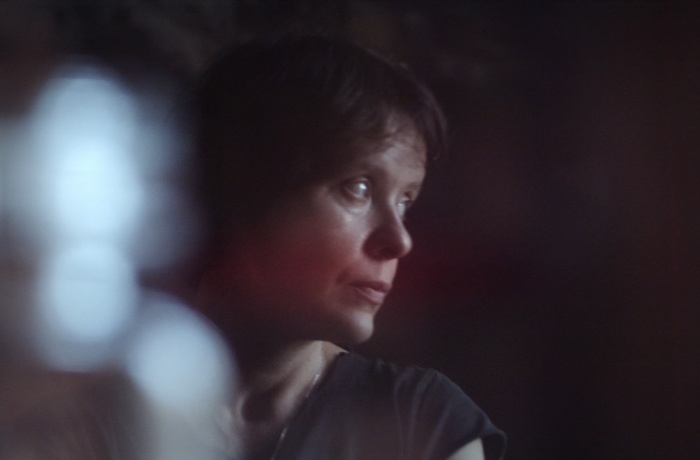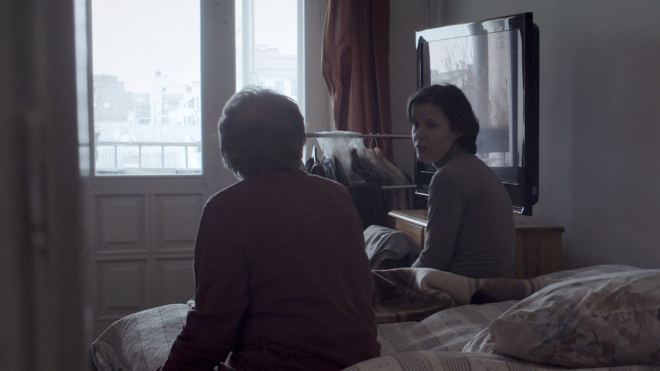How is Travelling Docudays UA in Poltava making events more inclusive and barrier-free?
How is Travelling Docudays UA in Poltava making events more inclusive and barrier-free?

The Travelling Docudays UA is not only expanding its reach geographically, but it’s also ensuring accessibility for diverse audiences, including those with visual impairments. Half of this year’s program features audio descriptions.
What is an audio description?
It is a concise but informative voice commentary that adds explanations about on-screen events. This way, blind and visually impaired viewers can not just hear the film but also ‘see’ it, thanks to the description of the visual component.
One such film is Ptitsa, featured at the 20th Travelling Docudays UA in Poltava. Director Alina Maksymenko tells a heartfelt tale about her relationship with her mother. These two gifted artists, one a musician and the other a painter, share a home but occupy separate realms that rarely converge. Their connection is deteriorating slowly, akin to the slow drip from their old boiler. The question arises: mend the old, or start over?

A still from Ptitsa
One day, the heroines’ lives take a turn when a friend calls to tell them that she lost her daughter in an accident. This event seems to rewind time, opening up new opportunities for both women.
After the screening of Ptitsa, the audience enjoyed an exclusive online conversation with director Alina Maksymenko, delving into the creative process and the film’s underlying ideas. This tale of hope, faith, and growth resonated with the audience, who experienced the film through audio description.
In the voice-over, the audience not only heard the film’s protagonists but also received brief explanations of on-screen actions. For instance, “the daughter came to the table and kissed her mother,” “a woman with short black hair gazes out the window, revealing a cityscape,” and “large bottles of water are being brought into the flat.”
During the discussion of Ptitsa, a participant confessed, “Previously, I only listened to films and imagined the characters in my mind. Now, I can better ‘see’ the characters as they are in the film.”
Presently, Travelling Docudays UA actively promotes inclusive practices in documentary screenings across Ukraine. The festival aims to further enhance inclusion in the future, considering barrier-free access as an integral part of culture and society.
Author: Olena Burim.
Main photo: A still from the film Ptitsa.
The 20th Travelling Docudays UA is supported by the Embassy of Sweden in Ukraine, the Embassy of Switzerland in Ukraine, and the US Embassy in Ukraine. The opinions, conclusions, or recommendations do not necessarily reflect the views of the governments, charities, or companies of these countries. The content of this publication is the sole responsibility of its authors.












